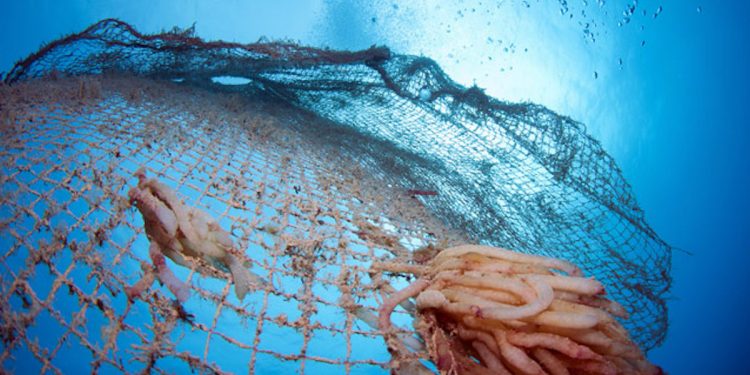A miniature transponder that can be attached to fishing gear is being developed and trialled as part of a project aimed at reducing ghost fishing.
The acoustic devices attached to fishing gear are designed to receive and automatically respond to an incoming signal, providing the position of the lost gear and making its recovery possible.
The project is a collaboration between Newcastle University (UK) which develops underwater communication and tracking technology, CIIMAR (PT), INESC-TEC (PT), and the Universities of Aveiro (PT) and Santiago de Compostela (ES), together with stakeholders from the fishing industry across Europe.

Also involved are fishing industry associations Associação Pró-Maior Segurança dos Homens do Mar (APMSHM) in Portugal and Cooperativa de Armadores de Pesca del Puerto de Vigo (ARVI) in Spain, as well as fishing gear supplier Lankhorst Euronete Portugal. The European Commission is contributing €394.449 to the project.
‘By attaching miniature, low-cost, subsea acoustic transponders to fishing nets or other gear, the aim is to be able to precisely locate lost gear from a search vessel and to investigate how underwater robots may be used to aid recovery where necessary,’ explained Newcastle University lead Jeff Neasham, a Senior Lecturer in the School of Engineering.
‘A unit on board the surface vessel will send out interrogation signals and any tagged gear within a range of 3km will send a reply from which it may be located. Recent developments by our team have delivered technology that is cheap enough to be viable for this application and low enough in energy consumption to allow small battery powered devices to be located many months after they are lost. We want to achieve a win-win scenario where modest investment by fishermen can be more than paid back, by avoiding the loss of valuable assets, while also significantly reducing a major source of plastic pollution in the marine environment.’
Radio waves cannot penetrate water, which is why communication and tracking below the sea is carried out via acoustic waves.

Underwater acoustic transponders and modems have historically been large, expensive technology which has limited their use mainly to high value applications, such as in the oil and gas industry. In addition, many devices emit high power in transmission (up to 100 Watts), which has environmental implications for large scale use, or consume significant power when listening which requires large battery packs for long deployment.
Newcastle University’s recent research has focused on miniature devices, around the size of a matchbox, which may be manufactured for less than £50, consume milliWatts when receiving and transmit less than 1 Watt of power using signals designed to minimise impact on marine life. Despite this, they are able to send data reliably up to 3km range at a rate of 500 bits per second which is able to support many applications in underwater data gathering, diver messaging and asset tracking.
Newcastle University has carried out world class research in underwater communications technology for over 25 years and their previous technologies are incorporated in over 2000 devices in use around the globe for underwater vehicle navigation, diver tracking/messaging and marine environmental monitoring.
The team are also collaborating with Heriot-Watt University and the University of York to develop large-scale smart sensing networks in the £1.3M EPSRC funded project USMART, as well as a NERC funded project with marine biologists using this technology to monitor marine mammal distributions and the impact of wind farms off the Northumberland coast.









